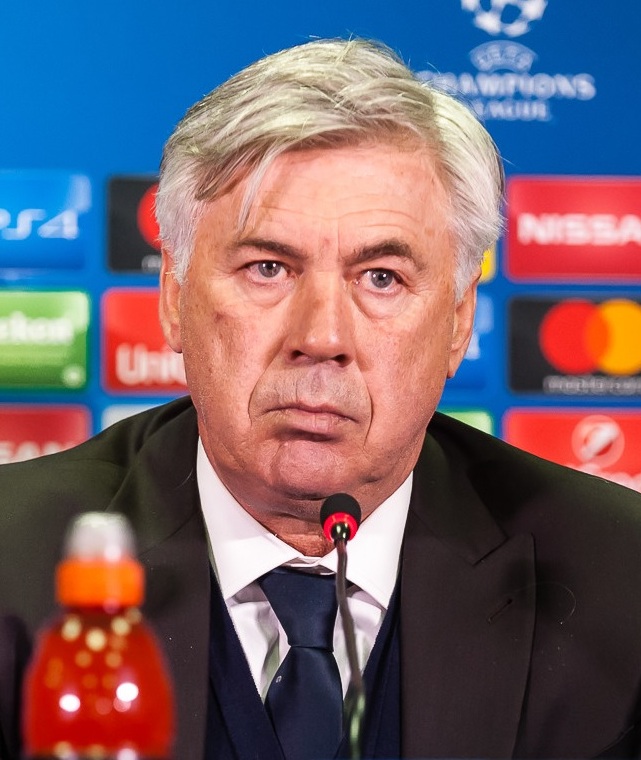
- Ancelotti’s Tax Fraud Case: Impact on Footballers’ Finances.
- What Ancelotti’s Legal Battle Means for Football’s Transparency.
- Image Rights and Tax Scrutiny in Football.
Carlo Ancelotti, the famous coach of Real Madrid, is currently involved in a serious tax fraud case.
Spanish tax authorities accuse him of not declaring part of his income from image rights during his first time at the club (2013-2015).
The prosecution is asking for a four-year and nine-month prison sentence.
This case shows how complex it can be to follow tax rules, even for top football professionals. 💼⚽
Tax Fraud Allegations: What’s at the Heart of the Case? 🧐
Charges of Concealment and Tax Evasion 💸
The main accusation against Ancelotti is that he hid some of his earnings from image rights. The key claims include:
- Failing to report certain income in his tax returns.
- Hiding earnings linked to image rights.
Ancelotti’s lawyer says he didn’t know he was doing anything wrong because he followed Real Madrid’s advice.
However, the judge didn’t accept this defense, saying the evidence clearly shows fraud. 🔍
Ancelotti’s Defense: Claims of Ignorance 🙋♂️
Ancelotti’s lawyer, Carlos Zabala, argues that the coach should be cleared of all charges.
He says that the Spanish tax authorities are trying to embarrass Ancelotti publicly.
Zabala explains that the coach simply followed the financial advice he received from Real Madrid.
Image Rights in Football: How They Affect High-Profile Coaches ⚽💼
In football, image rights are a way for players and coaches to make money from endorsements, sponsorships, and media deals, separate from their regular salary.
For top coaches like Ancelotti, image rights can make up a large part of their total earnings. 💵
How Ancelotti’s Image Rights Were Handled 💡
Ancelotti’s salary was set up so that 15% of his €6 million salary came from image rights.
Real Madrid suggested creating a company to handle this income.
In 2014, Ancelotti earned €1.24 million from image rights, and in 2015, this grew to €2.96 million.
Legal and Personal Impact on Carlo Ancelotti ⚖️
Ancelotti is widely respected for his leadership and skills as a coach, but this legal issue could hurt his reputation.
Even though he says he didn’t intend to commit fraud, the case is drawing a lot of attention, and his public image might suffer.
The case could hurt public trust in Ancelotti.
It may affect his legacy as a coach.
Public Perception: The Media’s Role 📰
The media is paying a lot of attention to this case, and people have different opinions.
Some believe Ancelotti is innocent and just followed Real Madrid’s advice, while others think that tax evasion should be taken seriously, no matter who is involved.
Also Read: Carlo Ancelotti Denies Tax Fraud Allegations in Court
The Need for Transparent Financial Practices 🔍
As football makes more money, it’s becoming even more important for players and coaches to be honest and clear about their financial dealings.
Ancelotti’s case is a reminder that failing to follow tax laws can lead to serious legal problems and damage a person’s career.
Being honest about income helps avoid legal problems.
Transparency is key to maintaining a good public image.
What’s Next for Carlo Ancelotti? ⏳
The Madrid High Court will soon decide Ancelotti’s case. The result could go one of two ways:
Ancelotti could be given a prison sentence if found guilty.
He could be cleared of all charges.
Either way, this case will likely affect how image rights are handled by football professionals in the future.
Impact on Football and Tax Compliance ⚖️
If Ancelotti is convicted, it could lead to stronger rules and more awareness about tax compliance in football.
This case might change how coaches and players manage their image rights and other forms of income.
A guilty verdict could lead to tighter laws on image rights.
The case could push for more responsibility in financial management within football.
Conclusion
The Carlo Ancelotti tax fraud case highlights the need for clear and honest financial practices in the football world. Here’s what we can learn from this situation:
Image rights are an important income source but must be handled properly.
Tax authorities are paying closer attention to how top players and coaches earn and spend their money.
The case could set a new standard for how image rights are taxed in football.
.png)
 5 months ago
64
5 months ago
64








 English (US)
English (US)